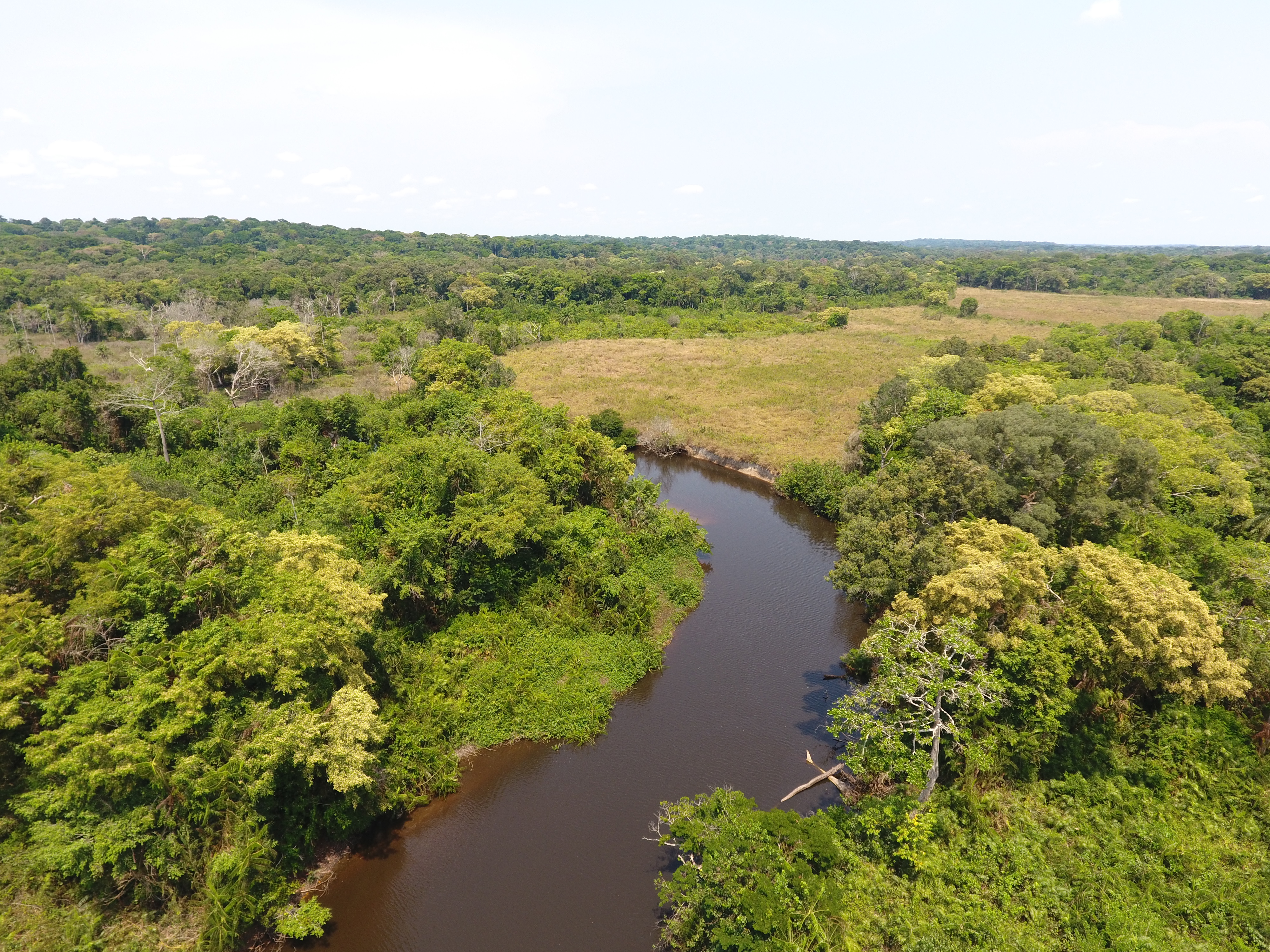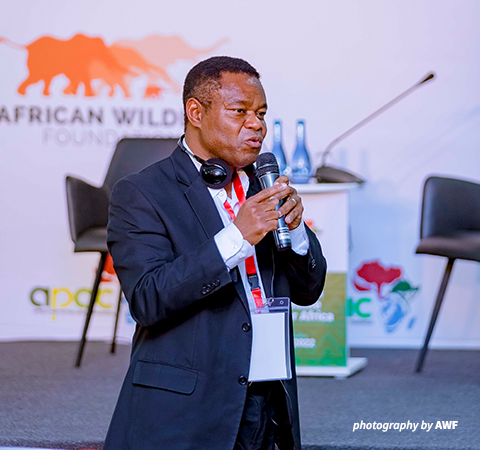How COP16 Can Deliver on Biodiversity Goals for Africa – A Conversation with Fred Kumah

As the world gears up for the 16th Conference of the Parties (COP16) to the United Nations Convention on Biological Diversity (CBD), taking place in Cali, Colombia, from October 21 to November 1, 2024, Africa is poised to be a focal point of global biodiversity discussions. Holding 25% of the world's remaining biodiversity, the continent plays a vital role in mitigating climate change and protecting the ecosystems that support millions of lives. However, these ecosystems face unprecedented threats from human activities and a changing climate.
For over 60 years, the African Wildlife Foundation (AWF) has championed Africa-led conservation, collaborating with governments, Indigenous Peoples, and local communities (IPLCs) to address these challenges. In this interview, Fred Kumah, AWF’s Vice President of Global Leadership, explores the significance of COP16, the obstacles Africa faces, and how AWF is shaping conservation strategies across the continent.

Frederick Kwame Kumah AWF's Vice President Global Leadership.
Q: Why is COP16 such a critical moment for Africa’s biodiversity?
Fred Kumah: Africa’s biodiversity is not only crucial for the continent but also for the entire planet. Our diverse ecosystems—from forests to savannas—provide essential services such as carbon sequestration, water regulation, and food security. However, these vital ecosystems are increasingly threatened by deforestation, the illegal wildlife trade, and climate change.
COP16 is critical because it’s the first biodiversity COP since the adoption of the Kunming-Montreal Global Biodiversity Framework (GBF) in 2022. Governments will be expected to demonstrate tangible progress on their National Biodiversity Strategies and Action Plans (NBSAPs). For Africa, this presents an opportunity to not only safeguard our biodiversity but also secure the necessary financial resources to do so. This conference will be pivotal in determining how seriously the world takes biodiversity conservation moving forward, and Africa's role is key to that progress.
Q: You’ve mentioned that funding is a significant challenge. How does this affect Africa’s ability to meet biodiversity goals, and what needs to happen at COP16?
Fred Kumah: Funding is the most significant challenge we face in achieving our biodiversity goals. The Global Biodiversity Framework calls for $700 billion annually to address biodiversity loss globally, but we’re currently about $500 billion short of that target. For Africa, home to some of the most important biodiversity hotspots, this lack of financial resources hinders our ability to effectively implement conservation strategies.
While many African countries possess the political will to conserve biodiversity, progress is slow without adequate funding. At COP16, we need firm commitments from the international community to close this funding gap. This could be achieved through a dedicated biodiversity fund, the reallocation of climate finance, or other innovative mechanisms. Ensuring these resources reach Indigenous and local communities is crucial, regardless of the specific funding mechanism, as they are at the forefront of conservation efforts.
Q: Africa has a rich tradition of Indigenous knowledge systems. How can COP16 amplify Africa’s voice in global biodiversity discussions, particularly when it comes to nature-based solutions?
Fred Kumah: Indigenous knowledge systems have been integral to conservation in Africa for generations. Local communities have developed time-tested, sustainable practices for managing their landscapes. However, these voices are too often marginalized in high-level discussions about biodiversity.
COP16 offers a platform to rectify this. We need to ensure that Indigenous Peoples and local communities (IPLCs) are not merely included in the conversation but recognized as leaders in conservation. Nature-based solutions, such as ecosystem-based adaptation, are vital for building resilience against climate change. These solutions are grounded in the profound understanding of the land that Indigenous communities possess. By integrating their knowledge with modern conservation strategies, we can develop approaches that are more holistic and sustainable.
Q: AWF has been a strong advocate for youth and IPLCs. How is AWF ensuring their active participation at COP16, and why is their involvement crucial?
Fred Kumah: Youth and Indigenous Peoples are the backbone of conservation in Africa. They are often the stewards of the land, utilizing traditional knowledge to protect ecosystems and transmitting this wisdom across generations. Yet, they are frequently excluded from policy discussions that directly impact their futures.
At AWF, we are dedicated to changing this. We are collaborating with youth networks and IPLCs across Africa to ensure their voices are heard at COP16. We have organized several side events where they will share their experiences, challenges, and proposed solutions directly with global leaders. This is not about token participation; it's about giving them a seat at the decision-making table. Their involvement is crucial because they possess the on-the-ground experience needed to shape policies that are both effective and equitable.
Q: One of the key goals for COP16 is achieving the 30 by 30 target. What does this mean for Africa, and how is AWF supporting this effort?
Fred Kumah: The 30 by 30 goal aims to protect 30% of the world’s land and oceans by 2030. For Africa, this presents both a challenge and an opportunity. Many of our ecosystems remain intact, and protecting 30% of our land will not only preserve biodiversity but also contribute to climate goals by maintaining carbon sinks.
AWF is actively supporting this target by advocating for formal recognition of community conservation areas. Many African countries are struggling to designate new protected areas, yet communities have been successfully managing these landscapes for generations. By formalizing these areas and ensuring they count toward the 30 by 30 target, we can achieve meaningful conservation while empowering local communities.
Q: What do you hope will be the key takeaways for Africa from COP16?
Fred Kumah: I hope COP16 will be a turning point for Africa in securing the financial resources needed to protect our biodiversity. Without funding, the ambitious goals outlined in the Global Biodiversity Framework will remain unattainable.
Furthermore, I hope to see greater recognition of the vital role Indigenous Peoples, local communities, and youth play in conservation. They are not merely stakeholders; they are leaders. If COP16 can formalize their role in biodiversity governance, we will be well on our way to creating conservation strategies that are both effective and inclusive.
Finally, I hope we can strengthen the link between biodiversity and climate action. The two are inextricably linked, and by aligning these agendas, we can build a future where both people and the planet thrive.